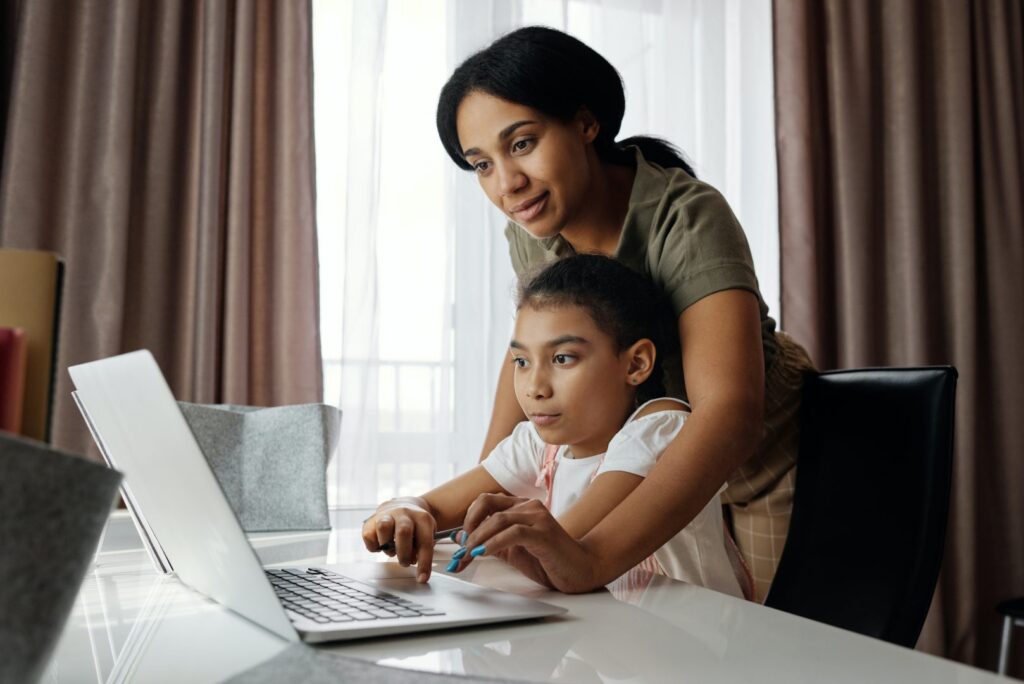Say thanks to technological development because we all have the opportunity to improve our knowledge, abilities, and skills. Technology is the tool our children use in their daily activities from an early age and throughout their academic life.
Introducing children to educational apps develops independence and autonomy in their learning. Practicing repetitive commands develops children’s tech skills and improves their problem-solving skills.
But to make all of the things we’ve already said more clear, in this article we’ll discuss the benefits of educational apps for children.
The Advantages of Educational Apps for Children
When we say educational apps, most children think of boring games for babies and toddlers. But, there are many other educational apps with countless advantages and benefits.

· Learning Becomes Fun and Engaging
Educational apps are interactive and have a colorful interface. Their content and instructions are clear and straight to the point.
That makes children’s learning process easier. Children might even forget that they are learning and won’t feel the pressure caused by traditional homework and studying.
· Customizable Learning Experience
Educational apps let children and parents customize the app according to the children’s age, maturity, interests, and skills. The learning material contains proper content and texts suitable to children’s knowledge and capacity.
· Interactive and Immersive Learning
Educational apps provide children with an interactive learning experience through exploring, interacting, and discussing with others in a virtual world.
· Increases Motivation and Confidence
The old teaching methods sometimes can pressure children and they feel a fear of failure. With educational apps, children are motivated to move on even if they make a mistake.

Positive thoughts and the engaging structure of the educational apps make our children feel secure and confident about learning.
· Allows for Self-Paced Learning
Educational apps allow self-paced learning for children, which means they choose their own speed, which is the opposite of classroom teaching methods. This is enjoyable and encourages children to not be afraid of assignments.
· Encourages Active Learning and Exploration
Educational apps allow creative learning experiences through a questioning model, embracing children’s curiosity and letting them explore abilities and skills.
The point of the learning process is knowledge, but educational apps offer children the chance to develop their skills, which are essential in today’s world.
Types of Educational Apps for Children
There are different types of educational apps our children can try out. According to our children’s interests, educational apps are categorized into the following categories.

Language and literacy apps (such as iWriteWords, Montessori Words & Phonics, and Lingokids-Play and Learn) help children learn language, vocabulary, and spelling.
Science and mathematics apps (such as Khan Academy, BrainPop, Coursera, and Quizziz) help our children become scientists and grow a love for math (the impossible turns possible).
History and social studies apps (such as Historia World, Stack the States® 2, and Geo Walk – World Atlas) help children learn through memory and exploring.
Arts and creativity apps (like Crayola Create & Play, Minecraft, Dr. Panda Art Class, and Coloring Apps for Kids) allow children to learn and express their feelings through creativity.
Critical thinking and problem-solving apps (like Think!Think!Games for Kids, Mystery Math Town, KidsLocik&Critical Thinking, and Invetioneers) promote children’s critical thinking abilities by solving problems, and are perfect for us, adults, too.
Health and well-being apps (like Headspace, Smiling Mind, Calm and other apps) allow children to protect and improve their health.
Factors to Consider When Choosing Educational Apps for Children
There are various educational apps on the market, and parents need to be vigilant when choosing because you probably don’t want to waste your time and sometimes money downloading apps that aren’t good.
Well-chosen educational apps can encourage children to develop their learning abilities, interests, and attention to detail during the educational process.
Reviews and experiences from friends, family, and also the Internet are always a good start. Good educational apps also make our children enjoy and feel self-confident while learning.
Moreover, parents must consider age-appropriate apps with quality educational material. To stimulate children’s independence while using the app, it should be easy to navigate and user-friendly.
Choose an app that provides a safe and secure online journey for our children and is compatible with the tech devices and operative systems they use.
Last but not least, depending on the family budget, you can choose a free or paid educational app (education is priceless).
Best Practices for Using Educational Apps with Children
Before installing the chosen educational app for your children, make sure that it is compatible with your children’s learning abilities and capacity.
Identify your children’s level of knowledge, their specific learning objectives, and define their educational goals and expectations.
Children like to use tech for anything, even learning, so parents must be alert and limit screen time to avoid addiction. Studies show that children shouldn’t spend more than 2 hours on tech every day. Parents, take that into account.

Challenges and Limitations of Educational Apps for Children
Some of the challenges that parents usually face when it comes to their children’s usage of educational apps are overreliance on technology.
Depending only on tech can make the learning process boring and not engaging, therefore children must balance between the book and the computer.
Using technology also limits the chance of children getting human interaction and socialization while learning.
Moreover, tech devices can distract children. You never see a child crying when you take away a book, but they always cry when you take away phones, tablets, etc.
Last but not least, children can run into inappropriate content while learning on tech devices, which can harm their emotional development.
Conclusion
We can conclude that thanks to technology development, our children can improve their learning abilities and knowledge by using educational apps.
Both traditional methods of learning and learning with the help of educational apps at one moment can be boring, unproductive, and ineffective for our children’s education.
But using the advantages of both methods makes education more fun and effective (at least a little bit). The fact is that educational apps follow up traditional methods of learning and makes education more interactive, engaging, and rewarding for children.
FAQs
What age group is most suitable for educational apps?
Preschool children from 3-5 years need educational apps to learn the basic of words, shapes, colors, and numbers. Schoolchildren between 6-18 years need educational apps for learning, searching, and broadening their knowledge.
How much screen time is appropriate for children using educational apps?
Appropriate screen time for children is two hours a day.
How can I ensure that my child is safe while using educational apps?
Set parental controls on your children’s tech devices and monitor their usage.
Are there any free educational apps available for children?
Yes, there are free educational apps available for children, such as Khan Academy, Sago Mini World, Montessori Preschool, Little 10 Robot, ABCmouse, and others.
How do educational apps compare to traditional learning methods?
Educational apps are more fun, interactive, and engaging compared to traditional methods of learning. At least according to children.
ALSO READ: Impacts of Social Media on Students’ Sleeping Habits







